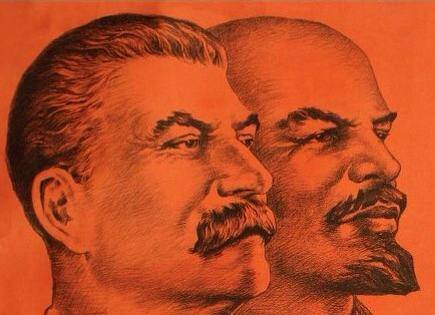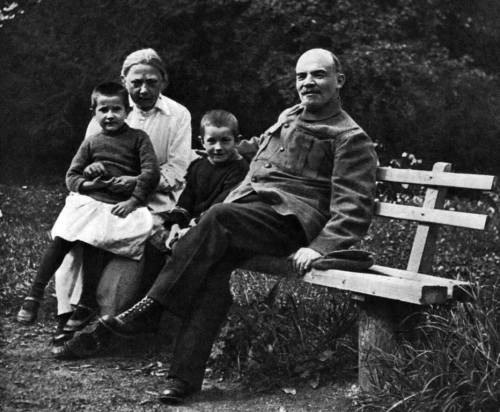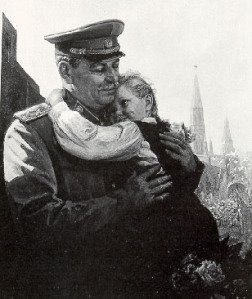“This is the reasoning of a liberal scholar who repeats the incredibly trite and threadbare argument that experience and reason clearly prove that men arenot equal, yet socialism bases its ideal on equality. Hence, socialism, if you please, is an absurdity which is contrary to experience and reason, and so forth!
Mr. Tugan repeats the old trick of the reactionaries: first to misinterpret socialism by making it out to be an absurdity, and then to triumphantly refute the absurdity! When we say that experience and reason prove that men are not equal, we mean by equality, equality in abilities or similarity in physical strength and mental ability.
It goes without saying that in this respect men are not equal. No sensible person and no socialist forgets this. But this kind of equality has nothing whatever to do with socialism. If Mr. Tugan is quite unable to think, he is at least able to read; were lie to Lake the well-known work of one of the founders of scientific socialism, Frederick Engels, directed against D’uhring, he would find there a special section explaining the absurdity of imagining that economic equality means anything else than the abolition of classes. But when professors set out to refute socialism, one never knows what to wonder at most—their stupidity, their ignorance, or their unscrupulousness.”
— V.I. Lenin, “A Liberal Professor on Equality”
“Engels was a thousand times right when he wrote that to conceive equality as meaning anything beyond the abolition of classes is a very stupid and absurd prejudice. Bourgeois professors have tried to make use of the concept of equality to accuse us of wanting to make all men equal to one another. They have tried to accuse the socialists of this absurdity, which they themselves invented. But in their ignorance they did not know that the socialists — and precisely the founders of modern scientific socialism, Marx and Engels — said: Equality is an empty phrase unless equality is understood to mean the abolition of classes. We want to abolish classes, and in this respect we stand for equality. But the claim that we want to make all men equal to one another is an empty phrase and a stupid invention of intellectuals. . . .”
— V.I. Lenin, “On Deceiving the People with Slogans About Liberty and Equality”
“The demand for equality in the mouth of the proletariat has therefore a double meaning. It is either — as was the case especially at the very start, for example in the Peasant War [see Engels’ work Peasant War in Germany]— the spontaneous reaction against the crying social inequalities, against the contrast between rich and poor, the feudal lords and their serfs, the surfeiters and the starving; as such it is simply an expression of the revolutionary instinct, and finds its justification in that, and in that only. Or, on the other hand, this demand has arisen as a reaction against the bourgeois demand for equality, drawing more or less correct and more far-reaching demands from this bourgeois demand, and serving as an agitational means in order to stir up the workers against the capitalists with the aid of the capitalists’ own assertions; and in this case it stands or falls with bourgeois equality itself. In both cases the real content of the proletarian demand for equality is the demand for the abolition of classes. Any demand for equality which goes beyond that, of necessity passes into absurdity.”
— Friedrich Engels, “Anti-Dühring”
“And yet there is a fair amount of confusion on this question among a section of Party members. There are those who think that by declaring the artel to be the fundamental form of the collective-farm movement the Party has drifted away from socialism, has retreated from the commune, from the higher form of the collective-farm movement, to a lower form. Why, one may ask? Because, it is suggested, there is no equality in the artel, since differences in the requirements and in the personal, everyday life of the members of the artel are preserved; whereas in the commune there is equality, because the requirements and the personal, everyday life of its members have been made equal. But, firstly, we no longer have any communes in which there is levelling, equalisation of requirements and personal, everyday life. Practice has shown that the communes would certainly have been doomed had they not abandoned equalisation and had they not in fact gone over to the position of artels. Consequently, there is no point in referring to what no longer exists. Secondly, every Leninist knows, if he is a real Leninist, that equalisation in the sphere of requirements and personal, everyday life is a reactionary petty-bourgeois absurdity worthy of some primitive sect of ascetics, but not of a socialist society organised on Marxist lines; for we cannot expect all people to have the same requirements and tastes, and all people to mould their personal, everyday life on the same model. And, finally, are not differences in requirements and in personal, everyday life still preserved among the workers? Does that mean that workers are more remote from socialism than members of agricultural communes?
These people evidently think that socialism calls for equalisation, for levelling the requirements and personal, everyday life of the members of society. Needless to say, such an assumption has nothing in common with Marxism, with Leninism. By equality Marxism means, not equalisation of personal requirements and everyday life, but the abolition of classes, i.e., a) the equal emancipation of all working people from exploitation after the capitalists have been overthrown and expropriated; b) the equal abolition for all of private property in the means of production after they have been converted into the property of the whole of society; c) the equal duty of all to work according to their ability, and the equal right of all working people to receive in return for this according to the work performed (socialist society); d) the equal duty of all to work according to their ability, and the equal right of all working people to receive in return for this according to their needs (communist society). Moreover, Marxism proceeds from the assumption that people’s tastes and requirements are not, and cannot be, identical and equal in regard to quality or quantity, whether in the period of socialism or in the period of communism.
There you have the Marxist conception of equality.
Marxism has never recognised, and does not recognise, any other equality.
To draw from this the conclusion that socialism calls for equalisation, for the levelling of the requirements of the members of society, for the levelling of their tastes and of their personal, everyday life—that according to the Marxist plan all should wear the same clothes and eat the same dishes in the same quantity—is to utter vulgarities and to slander Marxism.
[….]
Bourgeois writers are fond of depicting Marxist socialism in the shape of the old tsarist barracks, where everything is subordinated to the “principle” of equalisation. But Marxists cannot be held responsible for the ignorance and stupidity of bourgeois writers.
There can be no doubt that this confusion in the minds of some Party members concerning Marxist socialism, and their infatuation with the equalitarian tendencies of agricultural communes, are exactly like the petty-bourgeois views of our Leftist blockheads, who at one time idealised the agricultural communes to such an extent that they even tried to set up communes in mills and factories, where skilled and unskilled workers, each working at his trade, had to pool their wages in a common fund, which was then shared out equally. You know what harm these infantile equalita-rian exercises of the “Left” blockheads caused our industry.”
— J.V. Stalin, “Report to the Seventeenth Party Congress on the Work of the Central Committee of the C.P.S.U.(B.)”




